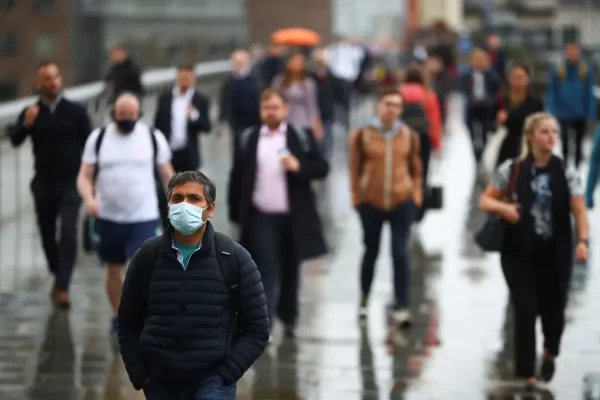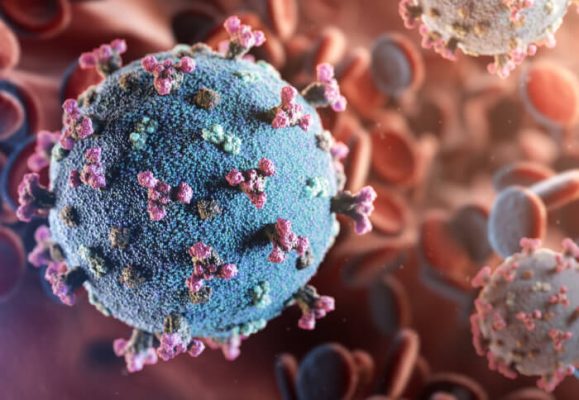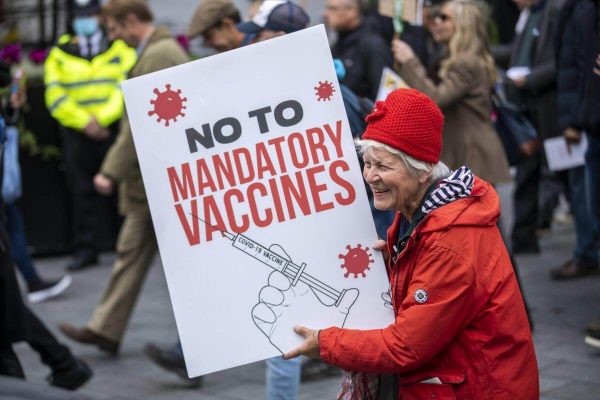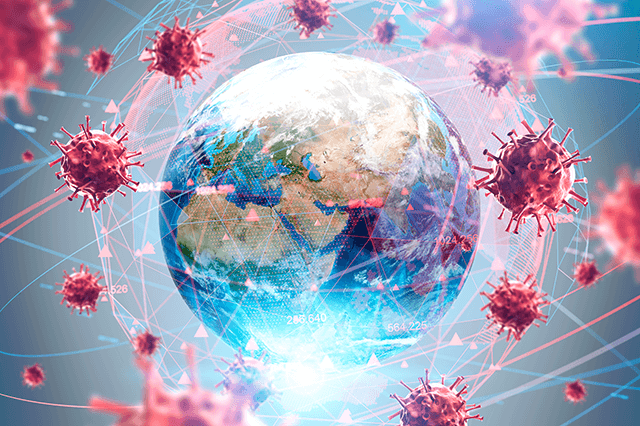The Pandemic: Is it Really Over?
It has been over two years since the world was hit with the COVID-19 pandemic, and while there have been significant strides made in the fight against the virus, the question remains: is the pandemic really over? The answer, unfortunately, is not a simple one.
Table of contents
- What are the Variables?
- What are the Effects?
- What Kind of Diseases are Left?
- Was the Vaccine Harmful? The Silence of the BioNTech Company After Pandemic?
- Will New Pandemics Occur?
- The Latest on the Pandemic in 2023
- COVID-19 Pandemic Cases and Deaths by Region (as of April 2023)
- Youtube Video About Biontech
- Final Thought
- You May Also Like
- FAQ
What are the Variables?
One of the variables that make it difficult to declare the pandemic over is the ever-evolving nature of the virus. A coronavirus, which is known to change quickly, is what causes COVID-19.
Because of this, the infection keeps evolving, making it difficult to remain on top of things.
The generation of novel variations is influenced by a number of variables. Also the first is the enormous amount of infections.
The likelihood of the virus mutating increases with the number of persons who contract it. The virus’s widespread circulation worldwide is another aspect.

The virus has the potential to move to other places, including those that have previously been successful in containing its spread, as long as it is present anywhere in the world.
Another factor influencing the pandemic’s course is vaccination rates. One of the best methods to stop the virus from spreading is through vaccinations.
Although the vaccines that have been created are very effective, their effectiveness varies depending on the particular virus variant.
Furthermore, there are significant differences in the level of vaccination across regions and nations, and new outbreaks of infections can still happen in places with low vaccination rates.
What are the Effects?
The pandemic has had a profound impact on society, with many people losing their lives and many more suffering from long-term health effects.
The World Health Organization (WHO) predicts that by April 2023, the virus would have killed more than 8 million people and infected more than 400 million people globally.
Additionally, the pandemic has had a sizable economic effect. All sizes of businesses have shut down, and the unemployment rate has increased.

According to projections from the International Monetary Fund (IMF), the global economy shrank by 3.5% in 2020, making it the worst downturn since the Great Depression.
The effects of the epidemic on the world economy will be felt for years to come, even though it is anticipated that the global economy will begin to recover in 2021 and 2022.
The epidemic has had a significant negative impact on mental health as well. Many people are suffering from higher levels of anxiety and despair as a result of the pandemic’s isolation and uncertainty.
According to a research by the Centers for Disease Control and Prevention (CDC), 42.4% of persons reported having anxiety or depressive symptoms in 2020, up from 36.4% in 2019.
What Kind of Diseases are Left?
While COVID-19 has dominated headlines, other diseases have not gone away. Diseases such as cancer, heart disease, and diabetes are still prevalent, and the pandemic has made it challenging for people to receive adequate healthcare.
Medical appointments have been often postponed or cancelled, and hospitals are struggling to care for COVID-19 patients due to the overwhelming number of COVID-19 patients they are now dealing with.

According to a study by the American Cancer Society, an estimated 1.9 million cancer cases went undiagnosed or untreated in the United States alone in 2020 due to the pandemic.
The highest annual increase in more than a century, the study also discovered that cancer fatalities in the US rose by 10% in 2020.
Was the Vaccine Harmful? The Silence of the BioNTech Company After Pandemic?
One of the most significant scientific breakthroughs during the pandemic was the development of vaccines that are effective against COVID-19. It has been demonstrated that vaccinations are quite successful in averting serious disease, hospitalization, and death.
The vaccine’s safety has, however, been the subject of considerable debate, with some individuals asking if it is hazardous.
Also the COVID-19 vaccines’ effectiveness and safety have been demonstrated by comprehensive research on vaccination safety.
The vaccinations have undergone extensive testing and have received approval from regulatory bodies worldwide for use in emergencies.
Also the vaccinations have an excellent safety profile and have been demonstrated in large-scale clinical studies to be very effective at preventing COVID-19 infections.

Despite this, some people have shown reluctance to receive vaccinations. Some people have voiced concerns about the vaccines’ safety, while others have questioned the necessity of immunization.
As vaccination rates have slowed in many parts of the world, vaccine hesitancy has posed a significant obstacle in the fight against the pandemic.
Also the BioNTech business, which created one of the most popular vaccinations, has come under fire for being silent on a few of these topics.
Some have questioned the company’s openness, claiming that it has not been forthcoming with information regarding the safety and effectiveness of the vaccine.
Nevertheless, BioNTech has been open about the security and effectiveness of its vaccine. Numerous studies on the safety and effectiveness of the vaccine have been released by the company, and independent experts have examined the data.
To guarantee the vaccine’s safety and effectiveness, BioNTech has also been collaborating closely with regulatory organizations.
Will New Pandemics Occur?
While it is impossible to predict the future with certainty, experts warn that new pandemics are likely to occur. New viruses frequently appear, and the risk of zoonotic illnesses rises as people intrude on natural environments.
Numerous factors, including population growth, climate change, and increased travel, can contribute to the emergence of new viruses.

Pandemics have occurred frequently throughout history, and more probably will in the future. Being ready is the key to averting pandemics in the future.
To create efficient plans for halting the creation and spread of new viruses, governments, scientists, and individuals must collaborate.
The Latest on the Pandemic in 2023
Although the pandemic is still ongoing as of April 2023, progress has been made. Numerous nations have seen a significant rise in vaccination rates, and novel antiviral therapies have also been created.
The frequency of new cases has decreased and restrictions have been loosened in various regions of the world.

The situation is still difficult in many other regions of the world, though. The number of new cases and fatalities continues to be high in several nations, while vaccination rates are still low in many regions.
It is uncertain how effective the immunizations will be against the virus’s constantly evolving strains.
The pandemic has also highlighted the need for global cooperation and collaboration in the fight against infectious diseases.
The pandemic has shown that viruses do not respect borders and that a coordinated global response is necessary to prevent the spread of infectious diseases.
COVID-19 Pandemic Cases and Deaths by Region (as of April 2023)
| Region | Total Cases | Total Deaths |
| North America | 99,830,000 | 2,217,000 |
| Europe | 90,720,000 | 1,767,000 |
| Asia | 215,310,000 | 4,523,000 |
| South America | 50,870,000 | 1,201,000 |
| Africa | 9,237,000 | 219,000 |
| Oceania | 934,000 | 16,000 |
Note: The information in this table may not accurately reflect the real number of cases and deaths because it is based on recorded cases and fatalities as of April 2023.
Due to underreporting and a lack of testing in some locations, the true number of cases and fatalities may be greater.
Youtube Video About Biontech
Are Pandemic Babies Different?
Babies who were born during the known as “pandemic babies ” might have different experiences compared to those born in other periods. Initial research indicates effects, on their milestones due to limited social interaction and heightened parental stress.
However it’s crucial to acknowledge that each babys experience can vary significantly. While some infants may face challenges, in developing their skills others might benefit from increased attention if their parents are working from home. Long term studies are necessary to gain an understanding of the developmental aspects associated with pandemic babies.
Are Pandemics Inevitable?
Pandemics although they don’t happen all the time are something we expect to occur over periods of time because of how infectious diseases work. Things, like travel, urbanization and changes in our environment make it more likely for diseases to spread.
The way humans interact with animals also plays a role since many diseases come from animals. While its hard to predict when pandemics will happen it’s really important that we keep an eye out for them and be prepared by doing things, like public health measures and scientific research.
The fact that pandemics are inevitable reminds us how important it is for everyone to work together globally when it comes to managing health and disease strategies.
Final Thought
In conclusion, the pandemic is a difficult problem that cannot be handled quickly. There is still considerable work to be done in the virus war, despite the advances that have been made.
The key to overcoming the pandemic is continued cooperation and collaboration among governments, scientists, and individuals worldwide.
Only by working together can we hope to bring an end to this crisis and prevent future pandemics from occurring.
You May Also Like
Is Diarrhea a Symptom of COVID?
Protecting Your Child During a Virus Epidemic
FAQ
A pandemic is a widespread illness epidemic that affects a large percentage of the population. Novel or modified viruses create pandemics.
Not the first pandemic. The 1918-1919 Spanish flu pandemic, 1957-1958 Asian flu pandemic, 1968-1969 Hong Kong flu pandemic, and 2009-2010 H1N1 swine flu pandemic are some examples of pandemics.
Given that COVID-19 has spread to numerous nations and continents and has a significant impact on the world’s population, it is currently regarded as a pandemic.
Epidemics are widespread disease outbreaks. A pandemic is a global epidemic that affects a large section of the population.
Novel or modified viruses create pandemics. Due to globalization and human-to-human interaction, the virus spreads swiftly. Globalization, urbanization, and population density can spread pandemics.





